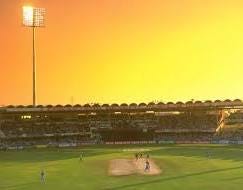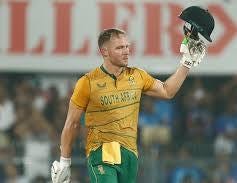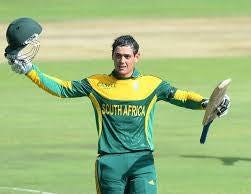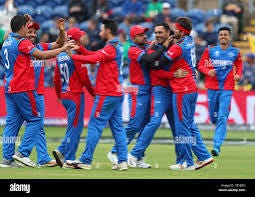Later this month the Proteas will play a three-match ODI series against Afghanistan in Sharjah where and will remain in the UAE to play two T20 Internationals and three more ODIs against Ireland which finish on October 7, the day after the final of the Caribbean Premier League.
The squads for those series are due to be announced on Monday and there are some interesting decisions to be made and compromises to be reached, as there were before the three T20Is in Trinidad two weeks ago.
There is a fine balance between providing opportunities for new players and maintaining the integrity of the brand. If the Proteas choose to play against the West Indies without nationally contracted Kagiso Rabada, David Miller and Heinrich Klaasen, then they can’t really afford to be hammered, which they were.
The message from Quinton de Kock and Anrich Nortje, meanwhile, is clear – and it will soon be received loud and clear by cricket followers if it hasn’t already: Bilateral international cricket simply doesn’t matter. In de Kock’s case, it may be any international cricket. It’s all about topping up his already plentiful golfing and fishing Knysna lifestyle fund.
Absolutely no snarky criticism intended. I have a healthy envy and great respect for the way he has (and is continuing to) monetise his prodigious talent. But there is a balance to be struck between the financial realities of his personal career and respect for the national team, his teammates and his coach. Two months after the T20 World Cup and Rob Walter still has ‘no idea’ of de Kock’s future plans. ‘I’ll see how I feel nearer the time’ is no way for Walter to prepare. Nobody is that good or indispensable.
Does Walter plan a route forward with Klaasen keeping wicket in the middle order, or continue to groom Matthew Breetzke as a like-for-like opening batter who keeps?
Walter’s balancing act, in the meantime, necessitates including a reasonable quota of experienced players alongside the many new faces. Batting at five, Rassie van der Dussen scored 17 from 24 balls, without a single boundary, chasing 180 in the second T20 against the West Indies. Reeza Hendricks made nine from 20 balls (actually three from 19 balls because he hit a six) batting first in the third game which was reduced to 13 overs per side.
While senior players are apparently able to pick and choose when they are available to play matches, Cricket South Africa has interestingly stuck to its policy of insisting that attendance of the national Awards night on September 6 is compulsory for all nationally contracted players. Anybody who has ever travelled between the Caribbean and South Africa will understand the journey Tristan Stubbs has had to make from St.Kitts to Johannesburg for the evening.
Will Miller and Klaasen opt to play in the UAE, or the Caribbean? Will they be given the choice? At well over $10k a game in the CPL there isn’t any doubt about where they would be better off financially.
Walter is a meticulous, forward-thinking planner. He was admirably irritated when it was suggested to him that the series in Trinidad was ‘pressure-free’ after the intensity of the World. He insisted that every game for your country was equally important, just as all players used to do a decade ago. Patently that is not the case and is widely accepted by the players, even welcomed.
As part of the ‘new era’ of bilateral international cricket an acceptance of ‘division two’ fixtures is essential – if they survive at all. There is barely an audience in Afghanistan and South Africa to make the series profitable and, if it is even televised it will be a ‘bare bones’ production with a skeleton staff. It was only possible because the Proteas were being hosted there by Ireland for whom it was cheaper to rent in the UAE than stage the games at home.
There is no end in sight to the dilemma: while cricketers are being paid considerably more by franchise leagues to play T20 cricket, they will be advised to take the easy money rather than play for their countries in fixtures without any jeopardy or consequence other than manoeuvring their careers towards the important matches. And it’s two years before the next T20 World Cup and three years until the 50-over version.
Imagine a world in which ODIs were played in a recognisable league with a champion every two years rather than randomly and hastily organised fixtures with most national boards living hand to mouth, year by year and making do without many of their best players when they have a better offer, or need a rest. Imagine.







As you say this, right now Duleep Trophy, a five day first class tournament with four Indian teams is being played with 60 players divided in 15 to each team with several key players playing except Rohit, Kohli, Bumrah, Jadeja, Ashwin, Shami, Siraj.
#Word!
I still don't get why they got rid of the ODI league as a pathway to WC qualification (just like the women still have) :)